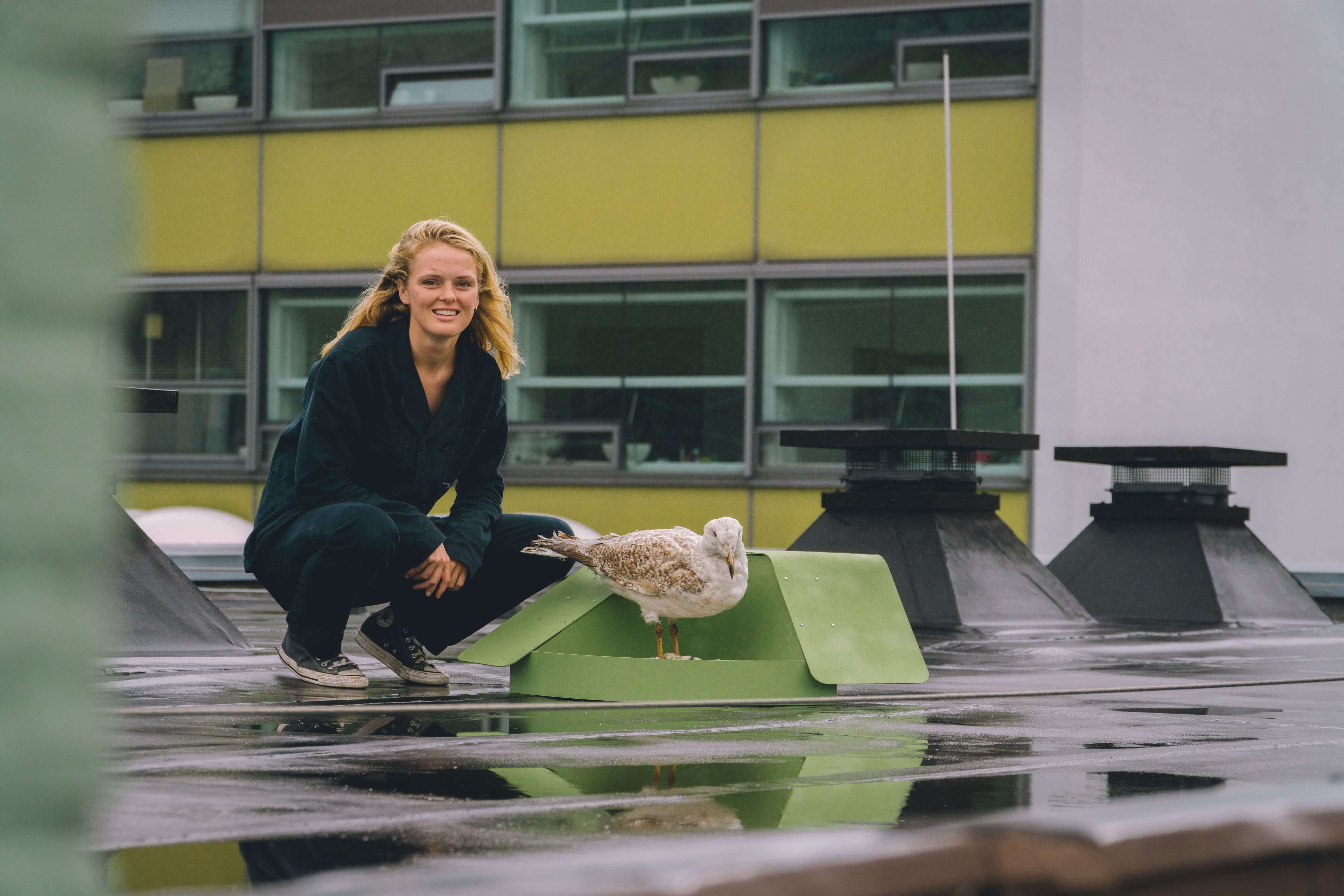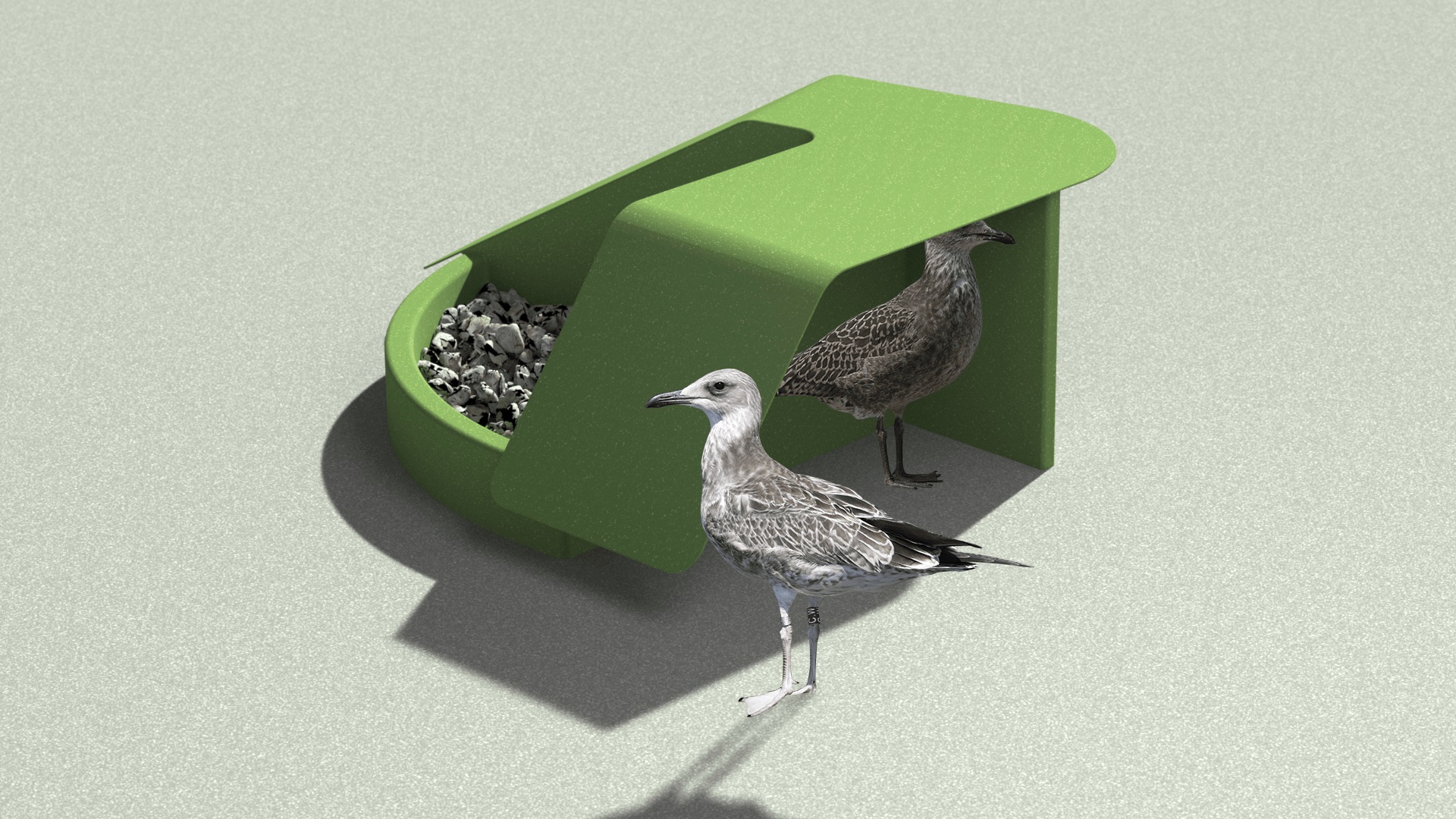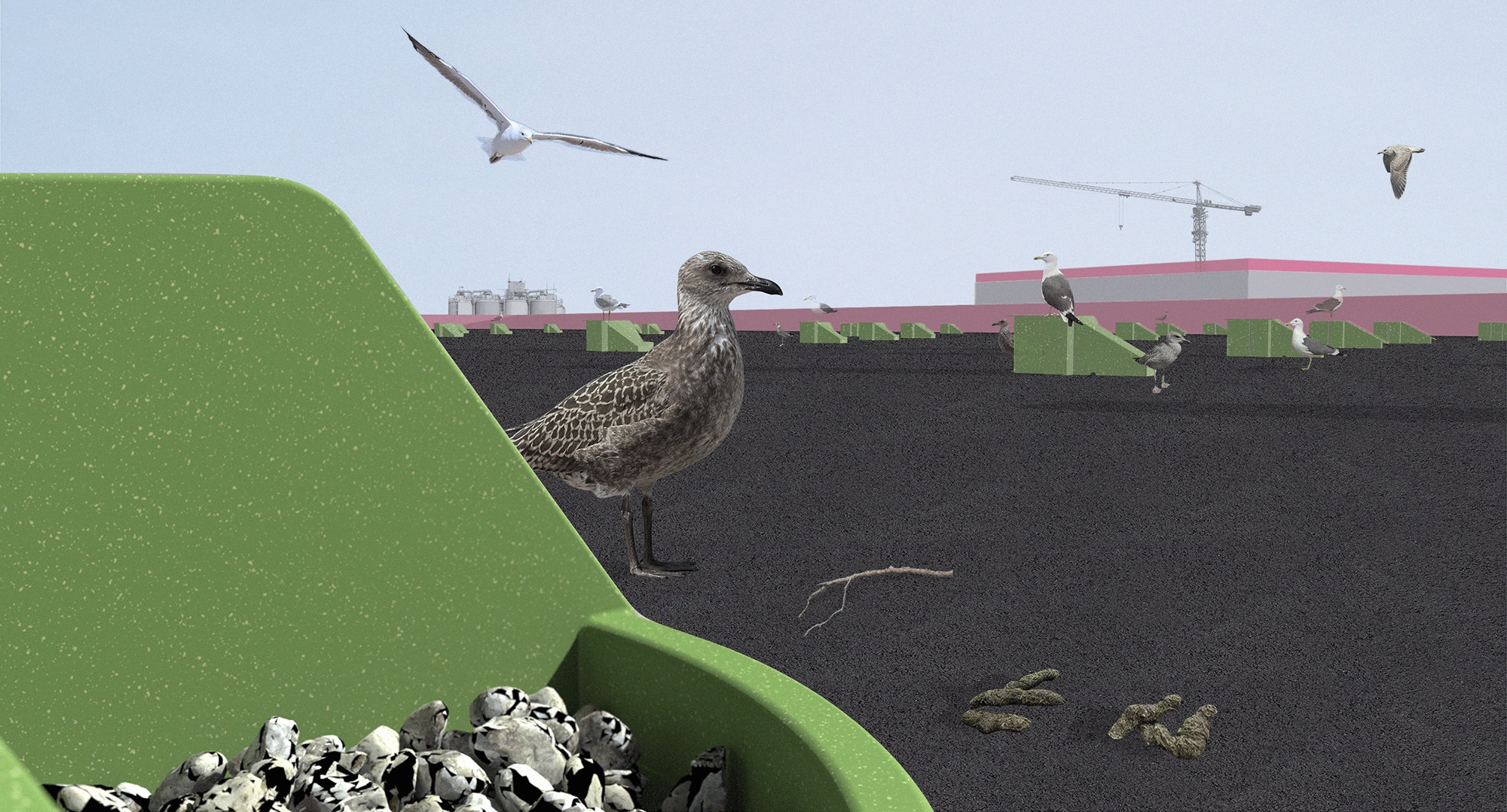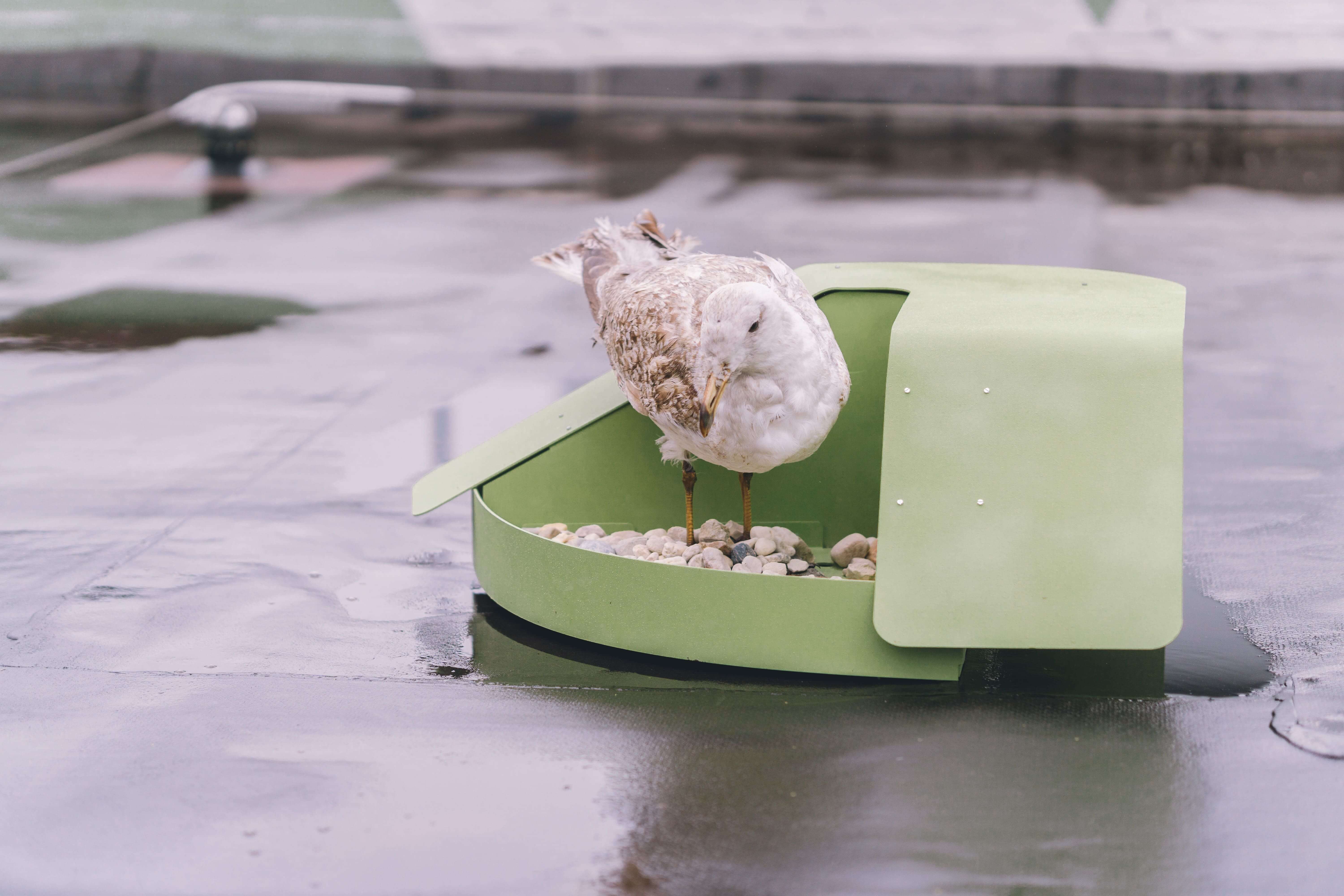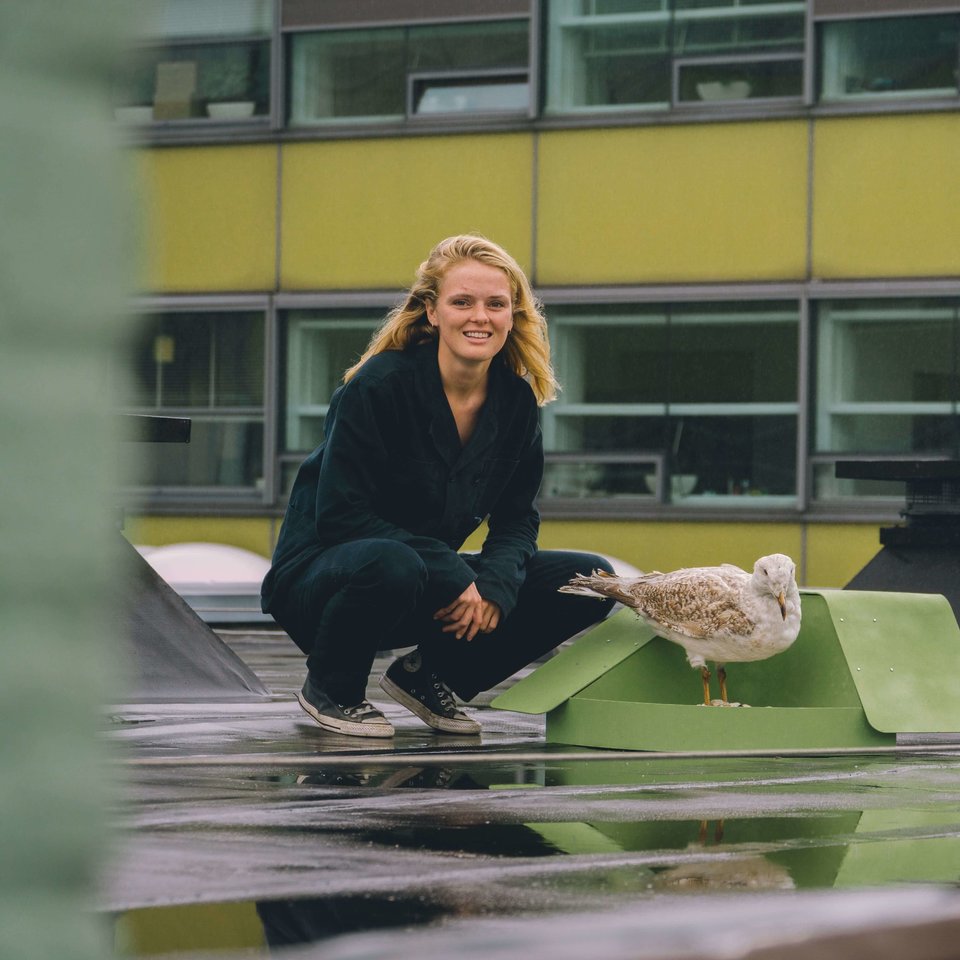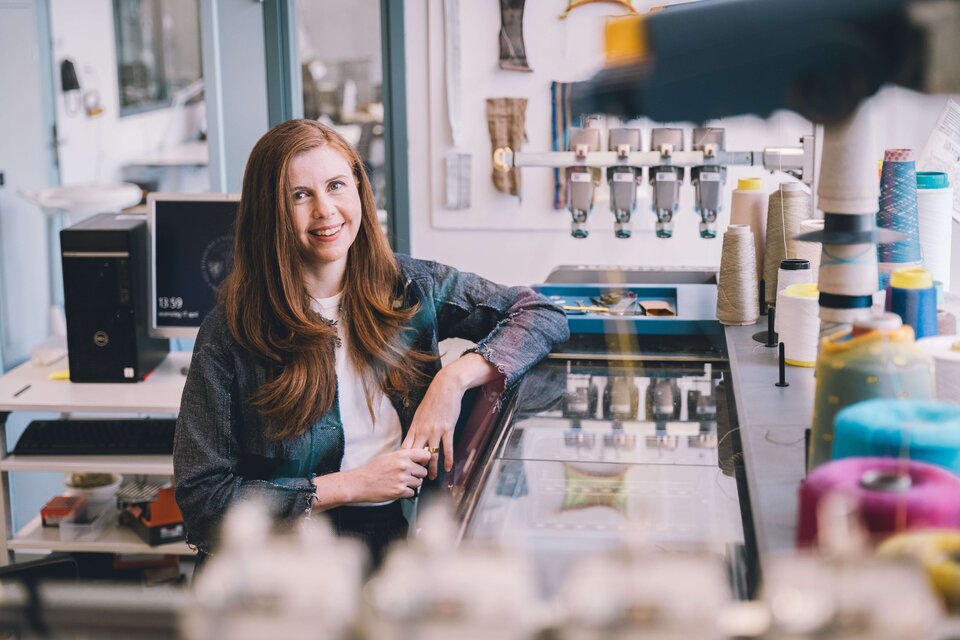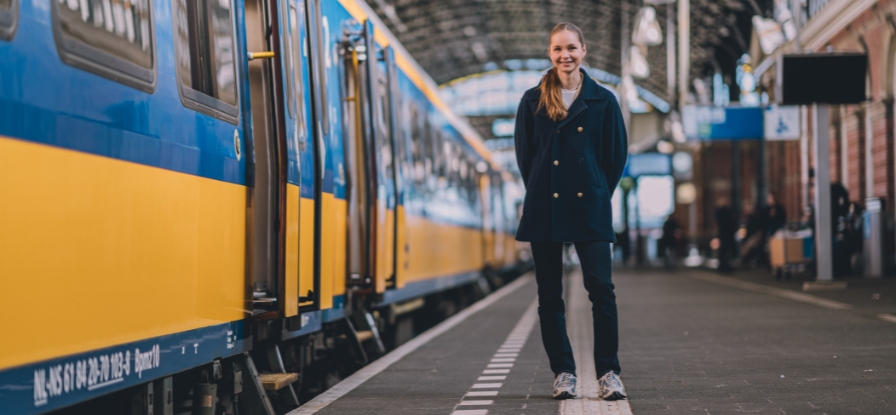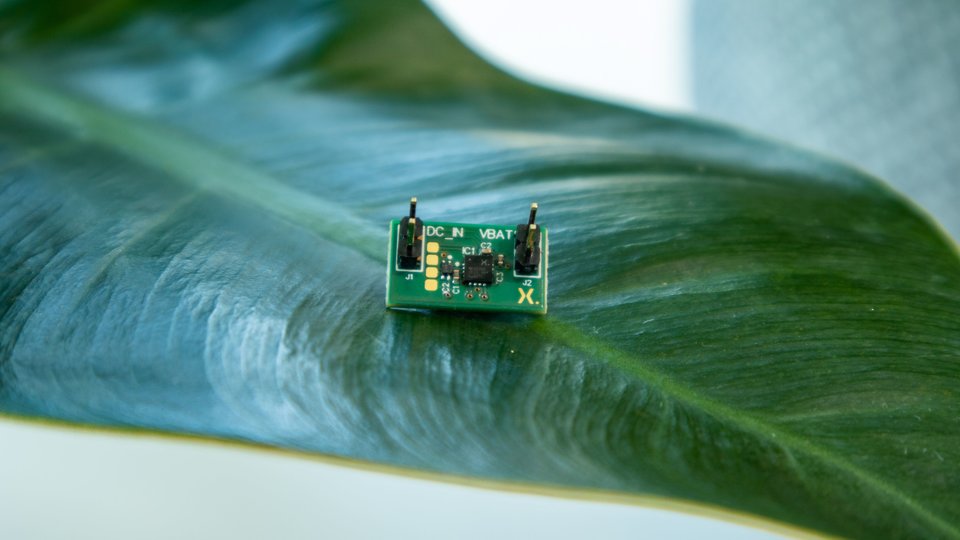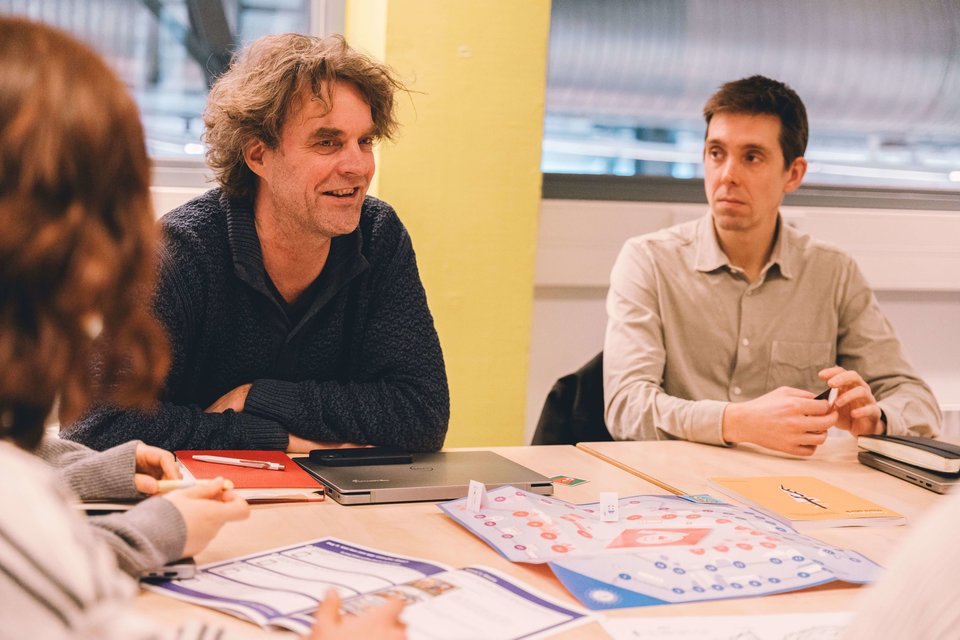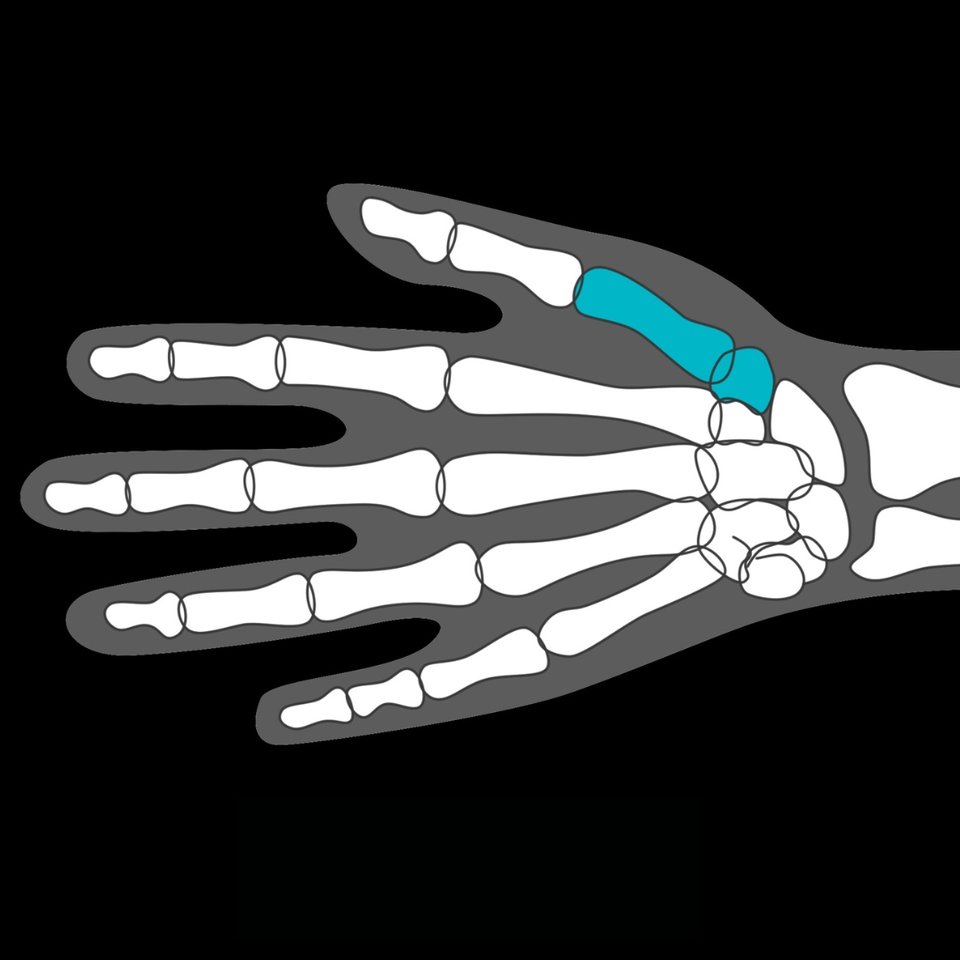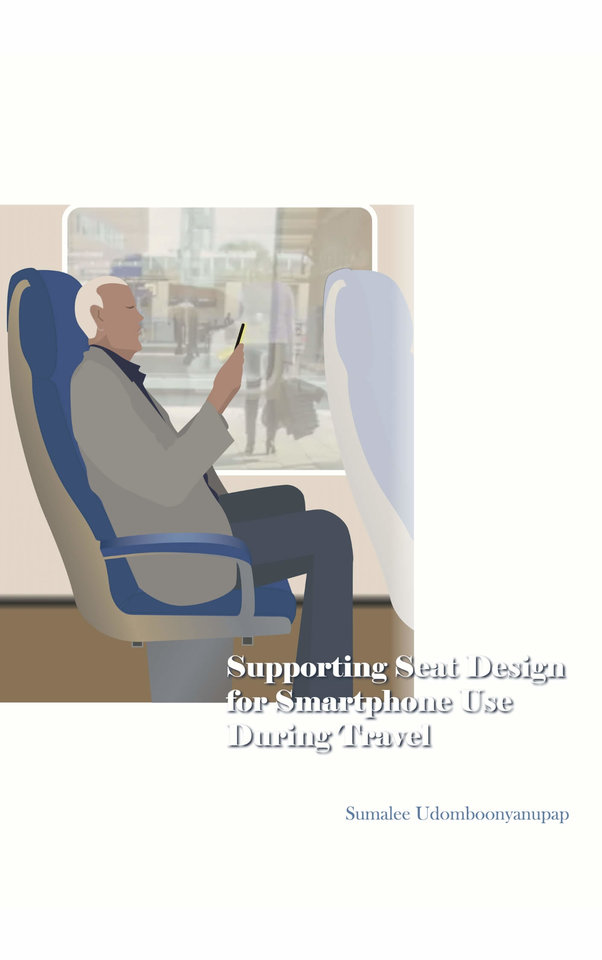A new home for the Black-backed Gull
The complicated relationship between humans and gulls is resulting in a declining gull population. A major cause is the disappearing wasteland in the port of Rotterdam, home to the bird. IDE student Joanna van der Leun designed a nest for the gulls which can be installed on the roof of harbour sheds. This protects them from weather and foes, and keeps them away from the city.
It is a lovely summer day. You are strolling on the dike of Scheveningen, enjoying some fish & chips. But what is that in the sky? Suddenly, a bird shoots at you in a swoop and grabs the fries. You drop everything right away and take cover. Did you ever see that happen? Can you guess which animal this was? A gull, of course, looking for a tasty morsel.
You wouldn't know it, but the gull population is under pressure in the Netherlands. Of the 11 gull species that live here, the Black-backed Gull in particular is struggling. Joanna van der Leun, who graduated from the Faculty of Industrial Design Engineering at TU Delft this year, wanted to use her graduation project to do something to help gulls and humans coexist.
Joanna started from a systemic design approach: as a designer you solve complex problems by first looking at systems and then using creativity to design solutions and interventions. She worked under the wings of Prof Bregje van Eekelen.
20,000 breeding pairs
There are currently 20,000 breeding pairs in the port of Rotterdam. That seems like a lot, but in recent years their numbers have been steadily declining. They used to be well off, their population exploded from the 1990s onwards. They could feast on dead fish thrown back by fishing boats. But due to regulations, this is no longer allowed. Those fish are now processed into fish oil, for instance.
"So they increasingly seek refuge in the city, where there is ample food," Joanna explains. "However, then you come into contact with people. With all the nuisance that entails. Think of struggling municipalities like The Hague, Alkmaar, Rotterdam."
"Still, gulls deserve a place here. They are part of our ecosystem, which is why they are also protected. The port is their home. There are relatively few people and fallow land is still available. This also keeps the animals away from the city and from breeding sites where even more vulnerable birds nest."
Congealed eggs
It is precisely this fallow land that is so popular with the Black-backed Gull, which prefers to nest on the ground. But the grounds are disappearing, to build factories or sheds, for example. In addition, in recent years the fox has also been active in the harbour.
"So the gulls are looking higher up," Joanna continues. "But the roofs of those cheap harbour sheds are not designed for birds breeding. They get too hot, which can clot the eggs. And when the chicks do hatch, they sometimes jump off the roof because of the heat. They end up on the ground among people and the gulls attack to protect their chicks."
Shelter from the elements
Therefore, Joanna designed a gull nest that can be installed on the roof of sheds. She gained her knowledge from research into gull habitats and by looking at the harbour from a gull perspective. This is how she discovered that low vegetation is important as protection from the elements, and also as a way to hide from other gulls and predators.
The design is 80cm in diameter and has a patch of gravel at the front for breeding. This is surrounded by a little wall that protects from the wind. Behind the wall is a cavity which provides shelter from the sun and possible enemies. "The nests should be at least a metre apart, because gulls are territorial, they like to keep an eye on each other."
Joanna thinks solutions like this could be important for humans, animals and the harbour. "The Black-backed Gull is a protected species. If numbers continue to decline, the port might not be allowed to release new sites due to Natura 2000 legislation. I have also heard from experts like Roland-Jan Buijs that there could well be a mass colonisation of gulls to the city, due to lack of food and land. As humans, we have a big impact on animal life. I think it is important to take that into account when we intervene in an environment."
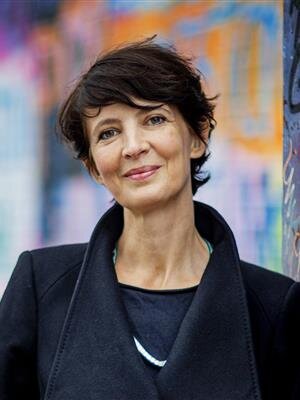
Bregje van Eekelen
- +31 (0)15 278 6934
- b.f.vaneekelen@tudelft.nl
- Publications
-
Room C-3-100
Present on: Mon-Wed-Thu

